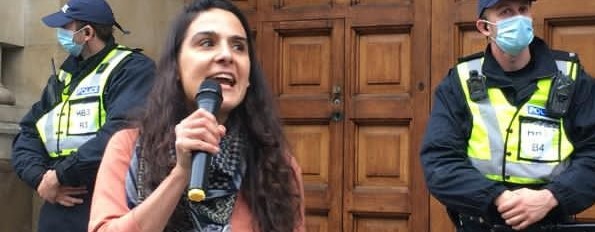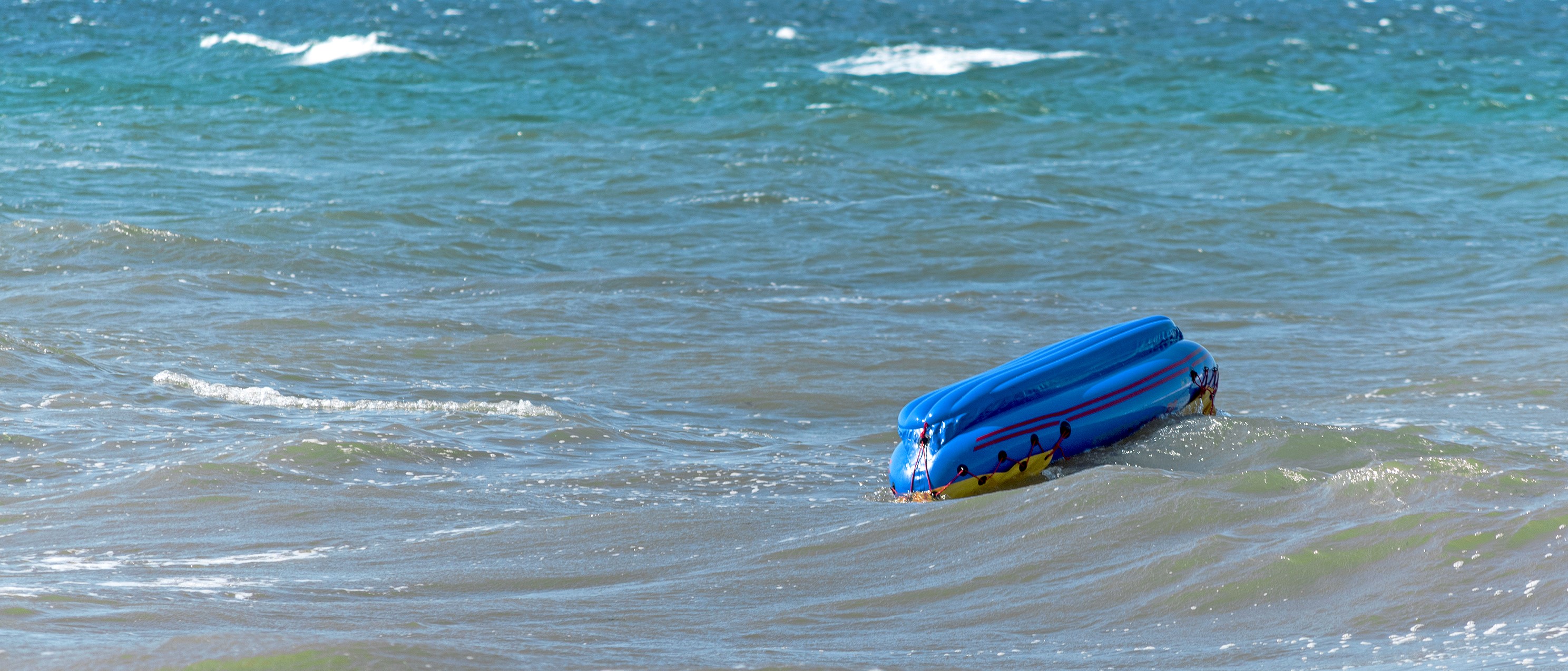Dots on the map?
Despite David Cameron announcing the UK will provide settlement for “thousands more” Syrian refugees there’s no doubt we have come to the Harry Lime moment in the latest refugee crisis.
In the film, The Third Man, Harry Lime – played by Orson Welles – has been brutally exploiting a post-war drug shortage resulting in the deaths of many people and causing birth defects in children.
Lime is looking down at the human dots “moving like black flies” at the bottom of the Vienna Ferris wheel. He asks his friend: “Would you feel any pity if one of those dots stopped moving – forever? If I said you can have £20,000 for every dot that stops, would you really, old man, tell me to keep my money – without hesitation. Or would you calculate how many dots you could afford to spare?”
Who is Harry Lime and sees people as dots of little value? And who sees the dots as people, who may need help?
The refugee question sets that problem.
And it has Cameron floundering in terms of how many refugees he is willing to allow in to the UK. He’s offered help anywhere except in the UK itself.
Warm words of sympathy certainly. And â€making busy’ – he’ll be hosting action groups, task forces and COBRA meetings by the weekend.
No action
But no concrete action here and now to accept even a fair share of refugees into the UK. He talks of a “swarm” of people at Calais, marginally better than the “flies” of Harry Lime, but only just.
Germany says it will accept up to 800,000 Syrian refugees this year. Austria have 20,000 applicants, France 30,000 and Sweden 30,000, the highest per million of their population.
And the UK – 166 between June 2014 and June this year, according to the Home Office. The Home Office claims that 5,000 Syrians have been granted safe haven in the UK since 2011.
But most of those, say critics, were Syrians already here who could not return. Only around 218 of that number are said to have travelled from Syria rather than already being UK based.
It is hardly a robust response to what the United Nations says is the biggest refugee crisis since the end of the Second World War.
Then the international response included the 1948 Universal Declaration of Human Rights which guaranteed a ‘… right to seek and to enjoy in other countries asylum from persecution’, and forbade the arbitrary deprivation of nationality.
The Geneva Convention on Refugees of 1951 gave further rights and banned their expulsion from countries of refuge.
Europe had its own plan to assist millions of displaced people and carried it out. The current EU response – Germany aside – is hampered by Governments looking over their shoulders at far right anti-immigrant parties such as Front National in France hoping to capitalise if help is given.
It is hardly a response to the tens of thousands of people fleeing war and the threat of violence who have been pouring over land borders. Thousands who took to boats drowned in the Mediterranean in the last two years – the dots stopped moving.
DrownedÂ
This week we saw photos of one of those dots, a little boy lying on the shore, drowned. Then picked up gently, as if he were only sleeping and carried in the arms of a man old enough to be his father.
When you close your eyes, do you see him? I know I do.
The drowned little boy stopped being one of Harry Lime’s dots and many – who may not have done so up to then – started seeing refugees and the displaced as human beings.
These people may not dress like us or sound like us. Some are from foreign lands of which we know little.
Of course there are millions of refugees and those displaced by many conflicts in and around the middle east and Africa. It is a dangerous existence.
Those not knowing the threats facing refugees are prone, over time, to forgetting what has gone before, even within the living memory of ourselves or our parents.
The Jews who fled to the UK to escape pogroms. Then later those who fled Hitler and who again had to flee from countries which had given them safe haven when the Nazis invaded.
In the UK they were not always welcomed. Jews and migrant Irish – also not welcomed – battled the Black Shirts in cities across the UK in the thirties.
Our shame
Those fleeing Hitler – on the Kindertransport for example – were not universally welcomed with open arms in the UK. Our historical shame is that, as a country, we did not help enough when we could have.
To be a refugee anywhere at any time is to live in fear. There are problems even after reaching a â€safe haven’.
In the mid-1980s I wrote about the plight of the “Vietnam boat people” who had also faced drowning and death to escape persecution. These were in fact ethnic Chinese who had fled Vietnam following that country’s war with China.
Exploited
In the UK they were exploited by employers and by greedy landlords. Their living conditions were poor and precarious.
One of the landlords was, I recall, advised by a local Tory councillor who was also his solicitor. There will always be those who exploit the desperate.
Those who go along with Harry Lime.
In 2006 I saw refugee camps within Iraq where tens of thousands had fled to what they thought was an area within Iraq’s borders where there was safety and shelter.
Most had fled the civil war which broke out after the 2003 invasion.
Some of the areas I was in 2006 have now been overrun by ISIL, with those displaced now having to flee over international borders for safety.
Yes, as a country, we have played a part in causing or worsening some of these problems over many decades either by too little action or too much action, especially of the warlike kind.
According to the United Nations High Commission on Refugees, at the end of 2014 a record-breaking 38 million people were forcibly displaced within their own country by violence, conflict and human rights violations.
It reports that Iraqi civilians suffered the most new displacement, with at least 2.2 million displaced in 2014. Some will have been among those I saw in 2006 who thought they were safe.
The UNHCR says at least 40 per cent of Syria’s population – 7.6 million people – have been displaced – the highest number in the world. Would you not flee if your family faced bombings, killings, poisonous gas?
Only a complete idiot would now think people are trying to flee to the UK to pick up welfare benefits. You do not risk your children drowning at sea or suffocating in the back of a truck for that.
While we cannot walk in their shoes, we can listen to refugees.
Somali poet and writer Warsan Shire fled to the UK and then wrote of her experiences in Teaching My Mother How to Give Birth. Her words a clear and powerful:
Broken and desperate
“Look at all these borders foaming at the mouth with bodies broken and desperate…I spent days and nights in the stomach of the truck; I did not come out the same….
“….No one leaves home unless home is the mouth of a shark….
“I watch the news and my mouth becomes a sink full of blood. The lines, the forms, the people at the desks, the calling cards, the immigration officers, the looks on the street, the cold settling deep into my bones, the English classes at night, the distance I am from home.
“But Alhamdulilah all of this is better than the scent of a woman completely on fire, or a truckload of men, who look like my father pulling out my teeth and nails….”
Union tradition
There is a proud trade union history of involvement in international issues, and helping those who need help whether they be asylum seekers, refugees or other migrants. They are the dispossessed, the shoeless, penniless and hungry who are not welcomed as they should be.
Experience shows they are often the most exploited, by landlords and employers.
No one country can help everyone in need. But every country can help someone.
It can be part of an international response to assist displaced people and refugees. Slamming the door shut on those driven from their homelands by fear does not help.
Neither can it be done on an ad hoc basis. Where we help one family because they are in the tabloids, but not twenty others who ended up on the editorial spike.
So we’re back to the Harry Lime question. Do we dither and leave them to drown or to the crooks who will let them suffocate in the backs of trucks?
Are they just thousands of dots of little value? Or are they our fellow humans to help.
Do we play a part in offering safe haven? Or walk on the other side of the road?
The trade union instinct chimes with that of the British people.
Unlike Harry Lime, we do not count up the â€dots’ of those lives we can afford to spare.
Value life
We value human life, we help and we do not walk away.
You can sign the petition demanding the government take action to support and accept refugees: https://petition.parliament.uk/petitions/105991
 We are also calling for a national day of action on Saturday 12 September, organise local events at places of worship or unveil a “Refugees Welcome Here” banner at football matches, use your imagination! You can join them on Saturday 12 September 2015 2pm Downing Street, London.
For more information: http://wembleymatters.blogspot.co.uk/2015/09/support-refugees-welcome-here-national.html?m=1
 Like
Like Follow
Follow


